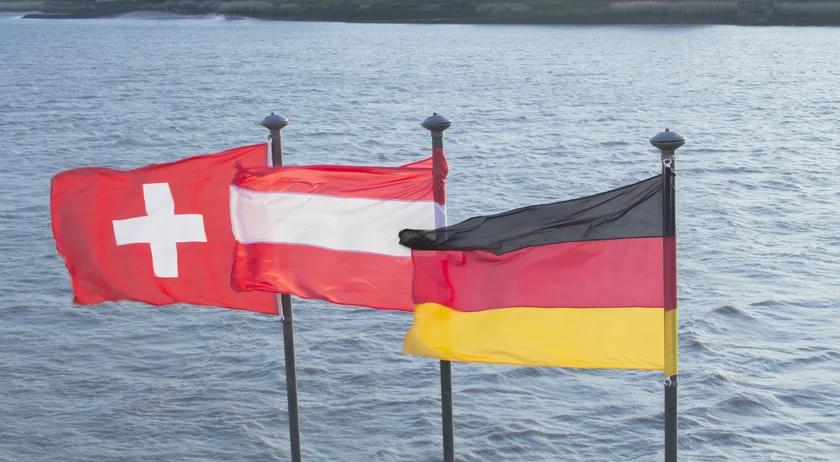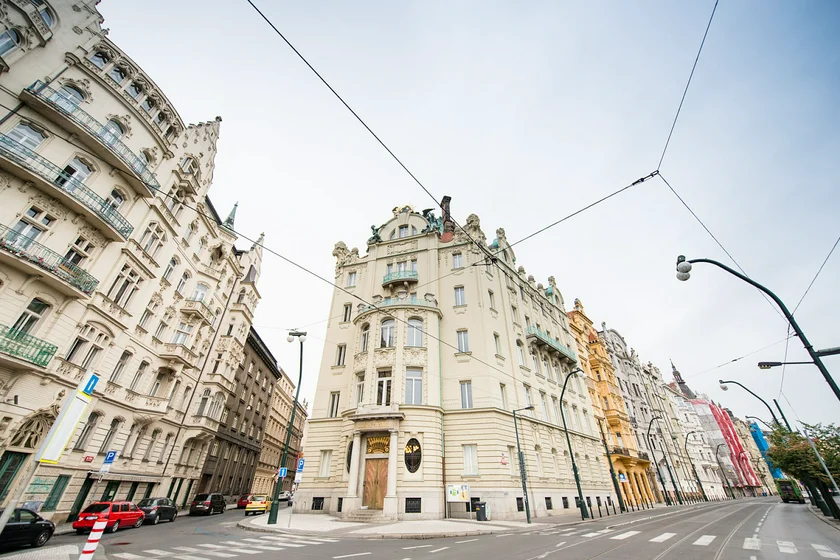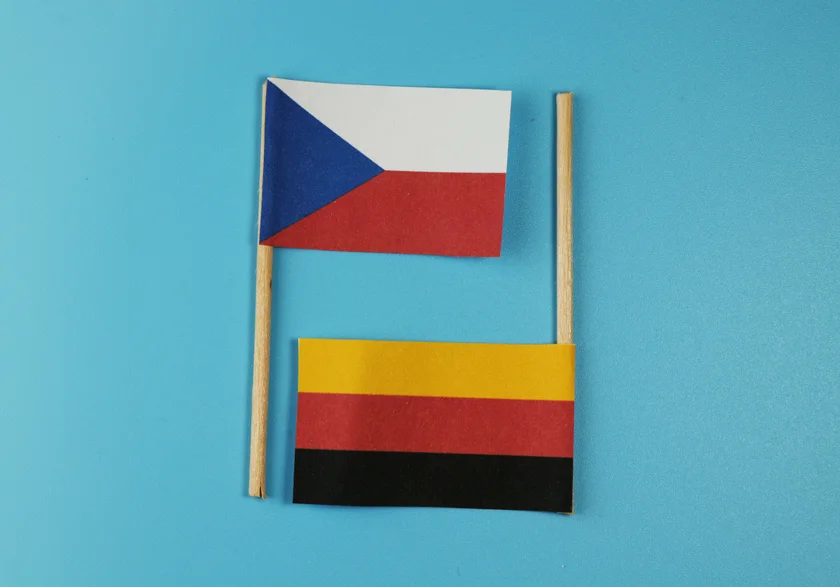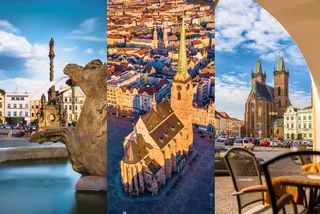According to the Czech Statistical Office, there are over 20,000 German nationals and over 3,500 Austrian nationals currently living in the Czech Republic. With so much shared culture, history, language, and cuisine between them it makes sense that today the country is an increasingly inviting place for German speakers to live and work.
Barbara Trunec is a German-speaking recruiter based in the Czech Republic. Born in Austria but raised in Switzerland, she currently lives in Pilsen with her Czech husband and children.
“Even though Czech is a Slavic language, we share a common culture so it’s easier to connect in casual conversation. And also we love beer,” she says.
Toby Fischer is a German who has lived in Prague for 14 years. He agrees that parallels exist between the two countries. "I think that Czech beer certainly has the edge," he says.
Both say finding work as German speakers came quite easily. As a recruiter, Trunec says German speakers are currently in high demand on the local jobs market.
For German-speakers thinking of relocating to the Czech Republic for work, Trunec and Fischer shared some essential advice:
1. Willkommen! There are German-speaking communities everywhere
The Karlovy Vary region is home to the largest percentage of citizens of German ethnicity, though Prague also has a strong German community. Many German speakers live in Pilsen or České Budějovice, border areas that allow them to work in the Czech Republic but remain close to home.
2. You don’t have to miss out on German culture
When it comes to films, music, and the arts, the Goethe Institut, based in Prague, hosts numerous events as well as an annual German-language theater festival in the Czech capital. The culture center also offers German lessons and a German library.
The Bohemian-Bavarian Center maintains a list of cultural events for border regions in Karlovy Vary, Pilsen, and South Bohemia. For those who want to follow Czech culture and news in the German language, Radio Prague International broadcasts live relays in German on a daily basis.
3. Job opportunities for German-speakers are on the rise
Given the country's record-low unemployment rates and growing opportunities for hybrid work arrangements, there may be no better time to consider a move to the Czech Republic no matter where you're from. But German speakers currently have an eged in the Czech market, particularly in customer service, confirms Rachel Dornan, a spokesperson for ICON Communication Centres, a leader in the shared services sector.
"We currently have multiple job openings for German speakers that cater to all levels of skill and experience, all you need is a willingness to learn," says Dornan who adds that ICON staffs German management and leadership teams as well.
ICON's flexible work policy allows for all employees to work remotely from anywhere in the country and is particularly favorable for students or moms seeking part-time work.
"At ICON we offer remote and flexible working because we know it attracts the best talent, whether it’s a student in Brno, a working mum in Děčín, or someone who just wants to be able to manage their own schedule in Pilsen. We’ve seen first-hand how this model improves work/life balance for our employees, heightens job satisfaction, and actually increases productivity."
Here's more news to make Germans mulling a move to the Czech Republic smile: On average Czechs get more paid holidays than Germany (33 vs. 30 respectively). ICON offers 20 days of holiday plus 3 free days after 12 months.
4. From knödel to knedlík, Czech borrows heavily from German
The influence of the Austro-Hungarian empire and the presence of Germans in Czechoslovakia during WWII led to a number of Germanic words becoming part of the standard Czech language. These include common words like brýle from Brille (glasses), knedlík from Knödel (dumpling), and lustr from Lüster (chandelier) but also more technical words such as žoldnéř from Söldner (mercenary). Word-lending isn’t as common in the other direction, though.
For those missing German conversation and cultural camaraderie or who want to practice their burgeoning Czech language skills, a number of Czech-German meetups (Stammtisch) take place in Prague and beyond.
Prager Runde is a Facebook community for German-speaking people living in the Czech capital. The group organizes a weekly meeting of “German-speaking friendship” at Restaurant Zvonařka. Deutsch-Tschechisches Café Praha/Prag is another Facebook group that helps German speakers get oriented. Similar meetups take place across the country in Ostrava, Brno, and Pilsen.
5. Czech and German cuisines are culinary cousins
There’s a lot of overlap between German, Austrian, and Czech cuisine. All three countries take pride in their beer drinking and consider sausages the iconic street food – though Czechs eat their klobásy with ketchup or mustard and Germans prefer their bockwurst with sauerkraut.
České buchty and koláč are similar to their Austrian pastry cousins buchteln and kolatschen, but many Germans and Austrians say proper white wurst is hard to come by. For those who might be craving a good kebab, an unofficial national dish in modern Germany, Gemüse Corner Kebab, recently opened a location on Prague's Londýnská street. In Old Town, Austrian-owned Maximilian Brasserie makes authentic Wiener Schnitzel fried in butter and Kaiserschmarrn for a sweet finish.
6. Enroll children in quality German education from Kinderkrippe to Gymnasium
While many of the German-language schools in the Czech Republic are concentrated in Prague, including the well-known Deutsche Schule Prag, additional bilingual schools with intensive programs resulting in a German-language diploma upon graduation exist all over the country.
These include nine schools in Prague, four in the Moravian-Silesian Region, two in the Pilsen region, and more than a dozen others. A complete list of German-language can be found on the German embassy’s website.
7. When it comes to sports, nature, and hiking Czechs mean business
Fischer says that Czechs' and Germans' shared love of football can be seen in the many sporting communities that exist in Prague and elsewhere in Czechia. "Prague has many football communities, not just for Czechs but even for German expats." He suggests Partisan Prague and Letná Football Group for anyone looking to enjoy some socializing around the football pitch.
As a German-speaking Swiss-Austrian living in the Czech Republic, Trunec is uniquely qualified to talk about a passion shared by all three nations: a deep love of hiking. Among these nationalities, however, she believes Czechs are the best equipped for the activity.
“When Czechs go to the mountains it’s all professional and they have top-of-the-line gear. Swiss are also quite precise about hiking gear. In Austria, we have lederhosen of course, but we go about trips to the forest in a really low-key way.”
She says people from German-speaking nations will appreciate the Czech love of nature and the way hiking in mountains and forests is a deep part of the national character. “Czechs may not have the biggest mountains,” she says, “but they have the greatest devotion to it.”
The ultimate symbol of the three nations’ shared love of lacing up hiking boots? The breathtaking Bohemian Switzerland National Park, is one of four national parks in the Czech Republic. Called Bohemian Swiss or even Czech Switzerland it borders the Saxon Switzerland national park in Germany.
8. Czechs and Germans share a special kinship
This year marks 25 years since the Czech-German declaration was signed by Václav Havel and German Chancellor Helmut Kohl. The declaration, signed on January 21, 1997, was intended to help the two nations cope with bilateral historical traumas stemming mainly from the Second World War and post-war events including the expulsion of ethnic German inhabitants from Czechoslovakia.
In January 2022, Foreign Minister Jan Lipavský and his German counterpart Annalena Baerbock released a joint statement commemorating the Czech-German Declaration and referring to Czech-German relations as the best ever.
In Trunec’s experience, the Czech attitude toward German speakers remains warm. Fischer says learning the Czech language helps greatly with integration and "exploring what this amazing country has to offer."
9. German speakers will find Czech etiquette familiar
While more laid-back attitudes tend to prevail at international companies in the Czech Republic, Trunec says German speakers will find the transition from their own business culture to the Czech office a smooth one.
Czech and Germanic cultures share common values of punctuality, formality, using titles, and dressing well. (That precision even carries over to the country's incredibly efficient public transport systems which are always spot on time!)
10. It’s easy to go home
Travel to both Austria and Germany is easy and affordable via car, train, or comfortable buses. Gas is cheaper in the Czech Repulic while the average fares for train travel to Berlin and Vienna, each roughly a four-hour train trip from Prague, begin at EUR 25.
Trains also reach various destinations in Germany (Nuremberg, Frankfurt, and Cologne) via the Western Bohemian town of Cheb while Dresden, less than a two-hour train ride from Prague or an even shorter trip in the car is a popular shopping destination among Czechs.
From June 2022, Czech Railways, in cooperation with Deutsche Bahn, will expand train service between the two countries creating a direct connection from Prague to Flensburg on the German-Danish border via Hamburg. That's good news for German expats like Fischer who says whenever he gets homesick in the Czech Republic, it's comforting to know Germany is just a few hours away.












 Reading time: 7 minutes
Reading time: 7 minutes 































